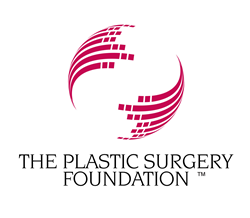
The Plastic Surgery Foundation Logo
“Expanding PROFILE beyond BIA-ALCL is essential to protecting our patients by identifying potential risk factors as we manage this disease,” says PROFILE Principal Investigator Colleen McCarthy, MD.
ARLINGTON HEIGHTS, Ili. (PRWEB)
March 22, 2023
The Plastic Surgery Foundation (The PSF) announced today that its PROFILE Registry has been updated to allow all United States physicians to report suspected or confirmed cases of Breast Implant-Associated Squamous Cell Carcinoma (BIA-SCC) as well as any lymphoma or other cancer found in the capsule surrounding breast implants beginning March 22, 2023.
“The expansion of PROFILE is vital to improving patient safety and was initiated in direct response to the U.S. Food and Drug Administration’s (FDA) September 2022 safety communication informing the public of reports of cancers, including SCC and various lymphomas, in the capsule that may form around breast implants,” says The PSF President-Elect Scot Glasberg, MD.
ASPS and PSF leaders responded immediately to provide a detailed overview of BIA-SCC and its symptoms to help plastic surgeons and other healthcare providers recognize it as a distinct disease entity, separate from the more widely known Breast Implant-Associated Anaplastic Large Cell Lymphoma (BIA-ALCL).
“Gaining IRB approval to expand the monitoring capabilities of PROFILE was the next step,” says Dr. Glasberg. “ASPS/PSF has not changed its initial guidance and clinical recommendations regarding BIA-SCC, but we expect to gain greater insights into this disease entity by reviewing each case entered into PROFILE.”
ASPS/PSF remains in communication with the FDA regarding this emerging issue. Data on BIA-SCC are currently limited, but BIA-SCC appears to be a rare but potentially aggressive epithelial-based tumor that can form in the capsule around breast implants. A March 2023 FDA follow-up communication reported that 19 cases of SCC have been identified in published literature. While the FDA states that occurrences of SCC are rare, the cause, incidence and risk factors remain unknown.
“PROFILE now provides a trusted mechanism for any physician with a patient who has a confirmed or suspected case of BIA-SCC or any lymphoma or other cancer in the breast implant capsule to report the clinical presentation, breast implant history, imaging studies performed, pathology of the capsule tissue, treatments used, and any outcomes,” says PROFILE Principal Investigator Colleen McCarthy, MD. Physicians should also report all cases of any cancer in the breast implant capsule to the FDA.
The PROFILE registry launched in 2011 as a collaborative effort between ASPS/PSF and the FDA to track cases of breast implant-associated anaplastic large cell lymphoma (BIA-ALCL), another uncommon yet distinct type of cancer that can develop around breast implants.
“Expanding PROFILE beyond BIA-ALCL is essential to protecting our patients by identifying potential risk factors as we manage this disease,” says Dr. McCarthy. “The PSF has taken an important leadership position in helping all stakeholders to better understand the role of breast implants in the etiology of BIA-SCC or other lymphomas in the breast implant capsule.”
ASPS and The PSF are committed to patient safety, advancing quality of care and the practice of medicine based upon the best available scientific evidence. The organizations will continue to monitor and review all new information as it becomes available to keep the plastic surgery community informed. If you have any further questions, please contact Amy Hughes, ASPS director of public relations, at ahughes@plasticsurgery.org.
About ASPS
The American Society of Plastic Surgeons (ASPS) is the largest organization of board-certified plastic surgeons in the world. Representing more than 11,000 physician members worldwide, the society is recognized as a leading authority and information source on cosmetic and reconstructive plastic surgery. ASPS comprises more than 92 percent of all board-certified plastic surgeons in the United States. Founded in 1931, the society represents physicians certified by The American Board of Plastic Surgery or The Royal College of Physicians and Surgeons of Canada.
About The PSF
The Plastic Surgery Foundation (The PSF), founded in 1948, supports research, international volunteer programs and visiting professor programs. The foundation’s mission is to improve the quality of life of patients through research and development. The PSF accomplishes its mission by providing invaluable support to the research of plastic surgery sciences through a variety of grant programs. The PSF works in concert with the American Society of Plastic Surgeons (ASPS).
Share article on social media or email:

